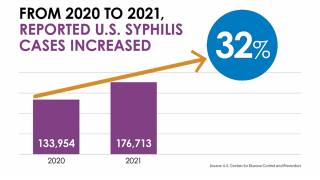One Third of Parents Don’t Know Their Teen’s Vaccination Needs

There’s little doubt parents know that infants need vaccinations to prevent certain diseases.
But, it seems parents are less vaccine-aware as their children become teenagers, according to a new C.S. Mott Children’s Hospital National Poll on Children’s Health.
According to this Mott poll, most parents reported their teen definitely (79%) or probably (14%) has gotten all vaccines recommended for their age.
However, many parents were unclear when or if their teen needed another vaccine.
Nineteen percent said their teen is supposed to get another vaccine within the next year, and 26 percent believed additional dose(s) would be due in more than a year.
Most interestingly, 36 percent of parents did not know if there was a need for additional vaccinations.
Terrill Bravender, M.D., M.P.H., an adolescent medicine physician at Mott said, “We put so much emphasis on vaccines for infants and toddlers that oftentimes the general public forgets that everyone — adults included — needs to continue to receive vaccines,” says Bravender. “It’s really a lifelong endeavor.”
Additionally, these researchers said that well-child visits drop away as children age, and parents are much less likely to keep track of common vaccination schedules once a child reaches middle school.
And, unlike elementary schools, few high schools send immunization reminders.
Over the past decade, the American Academy of Pediatrics (AAP) recommended immunization schedule for 11- through 18-year-olds has become more complex due to the introduction of vaccines that protect against serious pathogens such as meningococcus, pertussis and human papillomavirus (HPV) and the recommendation for annual vaccination against influenza.
The AAP reports vaccination rates vary greatly depending on the vaccine and state.
In 2015, the national vaccination rate for tetanus, diphtheria, acellular pertussis (Tdap) vaccine was 86% (range 70%-97%) and 81% (range 55%-98%) for quadrivalent meningococcal conjugate (MenACWY) vaccine.
However, completion of the three-dose HPV series was only 42% (range 24%-68%) for females and 28% (range 16%-58%) for males.
Similarly, only 46.8% of adolescents ages 13 through 17 received the influenza vaccine in 2015, even though the flu vaccine was found to be 59 percent effective.
The AAP says a strong recommendation from a healthcare provider is the most important reason why parents choose to vaccinate their children.
Mott researchers did not report any conflicts of interest with this poll.
Our Trust Standards: Medical Advisory Committee


























